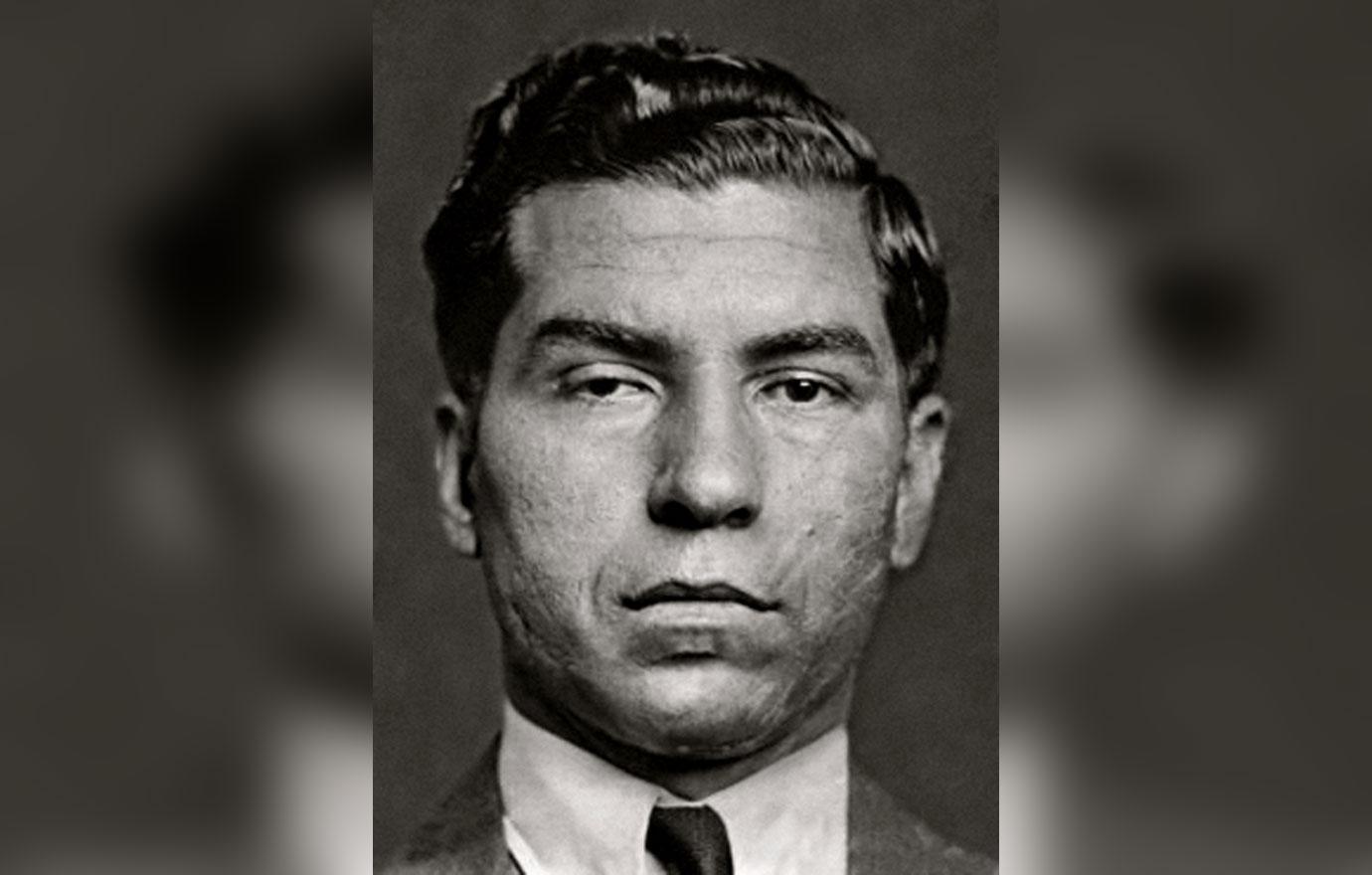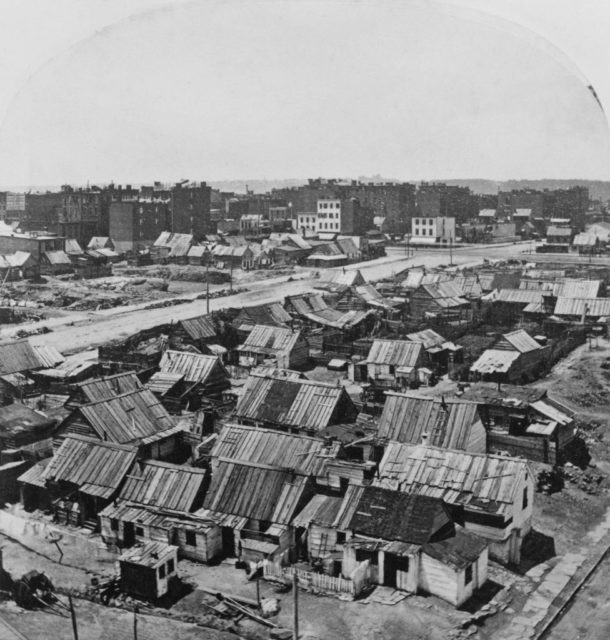
Salvatore Lucania: The Man That Created the Mob as We Know It

The American Mafia, an enduring symbol of organized crime in the United States, as well as the source of countless films and t.v. series, owes much of its formation and consolidation to one man: Salvatore Luciana, famously known as “Lucky” Luciano. He would rise to become the mastermind behind the amalgamation of five powerful mob families in New York City, reshaping the criminal landscape of the 20th century. We will explore Luciano’s life, his role in uniting the five crime families of New York City, his relationships with the figures that aided in his meteoric rise, and his eventual downfall and imprisonment.
Early Life and Immigration
Salvatore Luciana was born on November 24, 1897, in the small town of Lercara Friddi, Sicily. His humble beginnings were marked by poverty and hardship, as his family struggled to make ends meet.Salvatore Lucania’s journey to becoming Lucky Luciano began with his family’s decision to immigrate to the United States in search of a better life. In 1906, when he was just nine years old, Salvatore, along with his mother, Rosalia, and siblings, made the arduous journey across the Atlantic to join his father, Antonio, who had arrived earlier.
The Lucania family settled in the teeming tenements of Manhattan’s Lower East Side, an area known for its dense population of Italian immigrants.Life in the Lower East Side was far from glamorous. The Lucania family, like many other immigrant families, lived in squalid conditions and faced the daily challenges of poverty. Salvatore’s father, Antonio, struggled to find steady work, and the family relied on meager wages to make ends meet. It was in this environment of hardship and adversity that young Salvatore learned to be resourceful and resilient, qualities that would serve him well in his later life.

In the melting pot of immigrant neighborhoods, Luciano quickly became exposed to the criminal underbelly of the city. As he entered his teenage years, his involvement in criminal activities deepened. He became associated with various local gangs and began to establish a reputation as a young man with ambition and cunning. His intelligence and natural leadership skills set him apart from his peers, and he quickly rose through the ranks of the criminal underworld.By the 1930s, Luciano had established himself as a formidable figure in the New York City underworld. He was known for his intelligence, charm, and ruthlessness, earning him the nickname “Lucky.” But it was his vision and ambition that would set him apart from other mobsters of his time.
The Formation of the Five Families
Before Luciano’s rise, the American Mafia was a loose and disorganized collection of criminal groups, often at odds with each other. These groups were typically led by “bosses” who controlled their own territories and criminal enterprises, frequently clashing over territory, business interests, and personal vendettas. This lack of unity made the Mafia vulnerable to law enforcement and hindered its ability to expand its criminal enterprises.
By the early 1930s, New York City’s organized crime scene was highly fragmented, with numerous Italian-American criminal groups vying for power and control. Lucky Luciano recognized that this disunity among the Italian-American gangs was detrimental to their collective interests. He embarked on a mission to unify these factions under a single, cooperative entity.In 1931, Luciano, along with his close associate Meyer Lansky, orchestrated the creation of the Commission, an umbrella organization that would bring together the leaders of the Five Mafia Families. This body consisted of the bosses from the Lucchese, Gambino, Genovese, Bonanno, and Profaci families.

The Commission would act as a board of directors for organized crime in New York City, making decisions and settling disputes among the families. This consolidation of power not only reduced internal strife but also enabled them to control illegal activities more effectively, including gambling, prostitution, and bootlegging during the Prohibition era.
Key Figures in Luciano’s Rise
Lucky Luciano’s rise to power was closely tied to his relationships with influential figures within the criminal world. There were more than a few individuals that helped him, some knowingly and others inadvertently.
Giuseppe “Joe the Boss” Masseria was one of the dominant crime bosses in New York City during the Prohibition era. He initially helped Lucky Luciano establish himself in the criminal world. Masseria was instrumental in Luciano’s early criminal education and introduced him to the intricacies of organized crime. However, their relationship soured over time due to disputes over territory and power, leading to a violent conflict known as the Castellammarese War.

Salvatore Maranzano was a Sicilian-born mob boss who emerged as a rival to Joe Masseria during the Castellammarese War. Lucky Luciano, seeking to end the bloodshed and establish order within the criminal underworld, played a significant role in Maranzano’s rise to power. After orchestrating the murder of Masseria in 1931, Luciano aligned himself with Maranzano, who briefly became the “Boss of All Bosses.”

Meyer Lansky, often considered Luciano’s closest associate, was a brilliant strategist and financial mastermind. Together, they formed a powerful alliance that allowed Luciano to expand his influence beyond the Italian-American community. Lansky helped Luciano establish connections with Jewish mobsters, further strengthening his grip on the criminal empire.Together, they orchestrated the assassination of Maranzano, eliminating the “Boss of All Bosses” title and ushering in a more structured and democratic approach to organized crime.

Arnold Rothstein, known as the “Brain” of the New York underworld, was another influential figure in Luciano’s life. Luciano worked under Rothstein during his formative years and learned invaluable lessons in organizing criminal enterprises. Rothstein’s influence on Luciano’s rise to power cannot be overstated.
Downfall and Imprisonment
As Lucky Luciano’s power grew, so did the attention of law enforcement. The infamous 1936 Mafia Commission Trial, also known as the “Great Mafia Trial,” led to his ultimate downfall. Luciano, along with other top mob bosses, was arrested and charged with various criminal offenses.
Luciano realized that his criminal empire was at risk of crumbling in his absence. His reign as the “boss of all bosses” was marked by both prosperity and controversy. His involvement in prostitution, gambling, and drug trafficking made him a wealthy man, but it also attracted the attention of law enforcement. The pivotal moment in Luciano’s downfall came in 1936 when he was arrested on charges of running a prostitution ring.
Facing a lengthy prison sentence, Luciano realized that his criminal empire was at risk of crumbling in his absence. He saw an opportunity to cut a deal with the government. During World War II, he offered his assistance to the U.S. Navy by providing vital intelligence on the New York waterfront, which was vulnerable to enemy attacks. In return, Luciano’s sentence was commuted, and he was released from prison in 1946 on the condition that he be deported to Italy.
Exile and Legacy
Lucky Luciano spent the remainder of his life in Italy, far from the organized crime empire he had helped build in the United States. While he maintained some influence within the mafia, he was a shadow of his former self. He lived a relatively quiet life until his death on January 26, 1962, following a heart attack.
In the End
The demise, eventual arrest, and imprisonment of Lucky Luciano marked the end of an era for organized crime in America. His rise to power and his role in creating The Commission and The Syndicate cemented his legacy as a legendary figure in the annals of the American mafia. However, it was ultimately his conviction and subsequent exile that brought an end to his criminal reign, leaving behind a legacy that continues to captivate the public’s imagination to this day. Charles “Lucky” Luciano remains an enduring symbol of the American underworld and the complex relationship between crime and power



